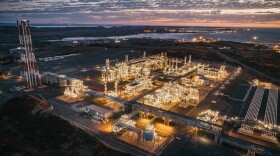-
The center served as a hub for emergency response during disasters and as well as an important cultural resource for Indigenous residents of Dulac.
-
Representatives for the locally-owned Smitty’s said the EPA and the LDEQ will still offer guidance as they resume control of the now charred and empty site.
-
The groups allege that the council violated Louisiana’s Open Meetings Law in a series of votes related to the expansion of an ammonia plant.
-
Three years after a federally funded move, Indigenous residents of Louisiana’s Isle de Jean Charles report broken homes — and promises
-
Officials are collecting samples from various locations and analyzing them for heavy metals – such as arsenic, chromium, barium and lead – and petroleum-related hydrocarbons.
-
The Calcasieu-Sabine Basin will get $122 million from the 2010 Deepwater Horizon oil spill settlement for drainage improvements geared to help marsh plants grow and halt erosion.
-
Woodside Energy’s $17.5 billion production and export facility, best known as “Louisiana LNG,” represents the largest foreign direct investment in state history.
-
Wind energy has gained some momentum in Louisiana, where there has been bipartisan support for policy to launch the alternative power source off its coast. But that push faces hostility from the Trump administration, which has halted all offshore wind energy development in federal waters for the time being.
-
The statement by an agency spokesperson comes after two judges ordered the environmental agency to pay contracts signed under Biden.
-
The pipeline would carry carbon dioxide for a controversial underground carbon-storage project. A new lawsuit argues it violates state law.

Play Live Radio
Next Up:
0:00
0:00
Available On Air Stations









